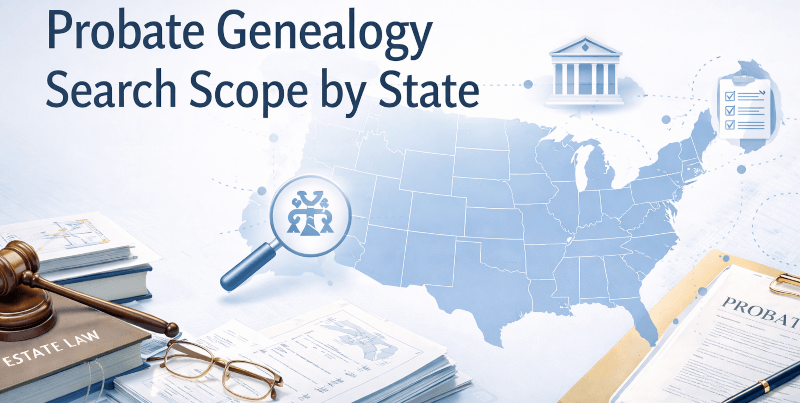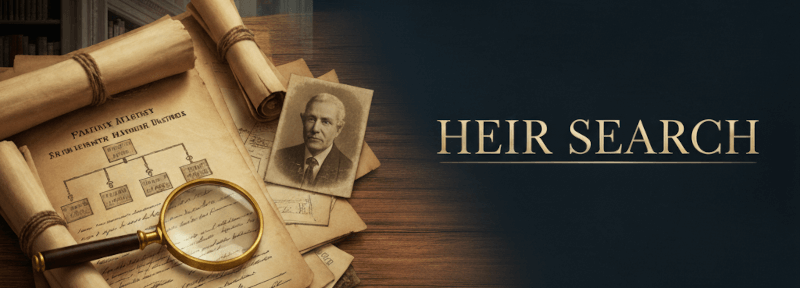
-
Jump to Section1 How Far an Heir Search Must Go Under USA Law for a Specific State2 Florida State2.1 Summary2.2 Overview2.3 Governing Statutes2.4 Step-by-Step Heir Search Order2.5 Minimum Documentation Standard2.6 Frequently Asked Questions3 California State3.1 Summary3.2 Overview3.3 Governing Statutes3.4 Step-by-Step…
-
Is Heir Search a Scam
Many people assume that an unexpected call or letter about “unclaimed inheritance” must be a scam. Sometimes it is. Often, it’s a legitimate outreach from a professional researcher asked to identify and contact heirs in a probate matter. This article…
-
How Should Attorneys Handle Conflicts Between Named Beneficiaries and Heirs?
Estate planning attorneys: Learn proven steps to resolve beneficiary vs heir disputes and avoid costly litigation. Expert tips on wills & legal rights.
-
How Does Property Pass When No Heirs or Beneficiaries Are Found?
No heirs? Unlock how property escheats to the state and key estate administration steps for probate lawyers to manage unclaimed assets.
-
What Are the Probate Court Requirements for Heirship Affidavits?
Learn probate court requirements for heirship affidavits to prevent costly delays in estate administration. Detailed legal guide for probate pros.
-
What Happens When a Minor Heir Is Located During Probate?
Jump to Section1 Summary2 Overview3 Common Challenges4 Step-by-Step Process5 FAQs5.1 What should I do if I discover a minor heir during probate?5.2 Can a minor heir receive their inheritance directly?5.3 How are minor heirs protected under U.S. law?5.4 What happens…
-
Can a Missing Heir’s Share Be Deposited Into a Court Registry?
Probate delays on a missing heir? Find out how to deposit their share into a court registry with expert legal steps now.
-
What Legal Rights Do Non-Marital Children Have in Probate Cases?
Jump to Section1 Summary2 Overview3 Common Challenges4 Step-by-Step Process5 FAQs6 Expert Tips7 Related Resources Summary Non-marital children often face unique legal challenges and considerations in probate cases. Understanding their rights is essential for ensuring they receive fair treatment and inheritances…
-
What Are the Best Practices for Documenting a Professional Heir Search?
Discover step-by-step best practices for documenting a professional heir search in probate. Expert tips to avoid pitfalls and ensure estate compliance.
-
How Do Courts Address Alleged Fraud in Heirship Petitions?
Jump to Section1 Summary2 Overview3 Common Challenges4 Step-by-Step Process5 FAQs6 Expert Tips7 Related Resources Summary Dealing with alleged fraud in heirship petitions is a complex issue that courts take seriously. This article outlines how courts are equipped to handle such…









